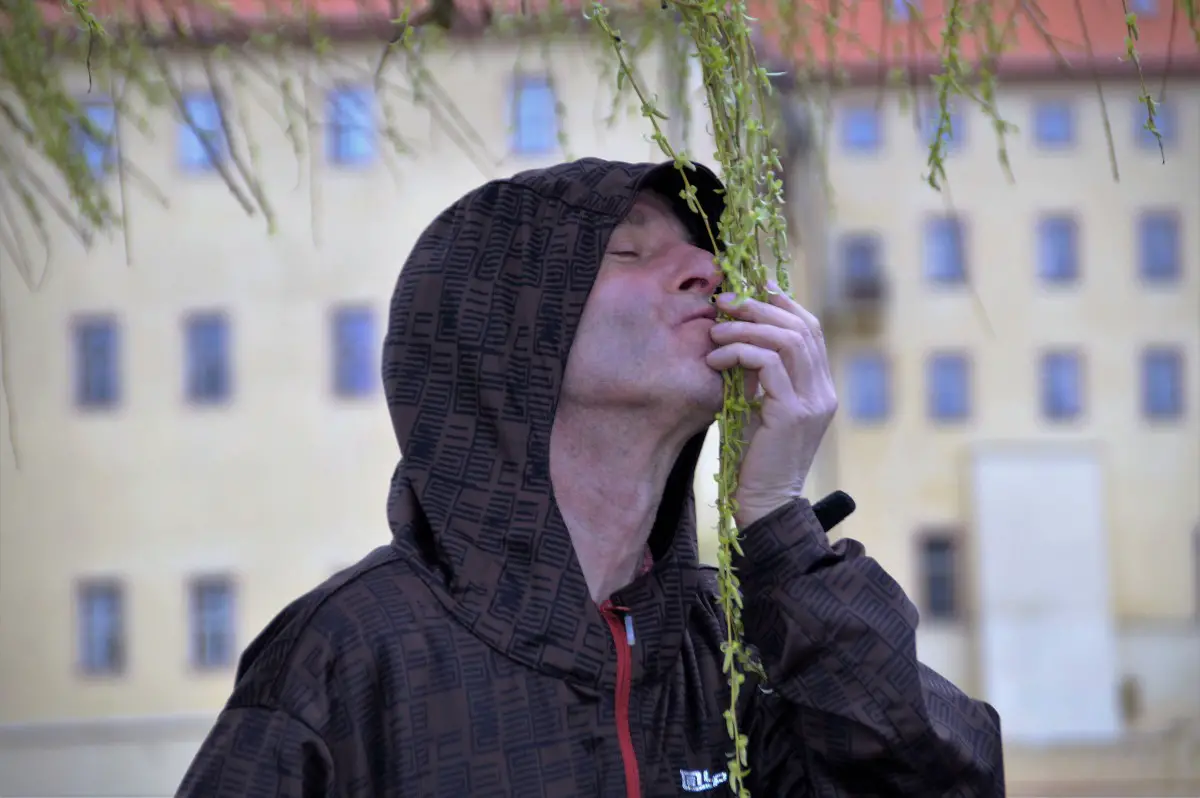You ever catch your reflection and think, “Why do I look like I aged five years this week?” Or bend over to tie your shoes and feel like you just ran a marathon? Yeah… aging’s supposed to be a slow fade, not a time-lapse video. But for some of us, our bodies are skipping chapters—and not in a cute, wise-grandparent kind of way. We’re talking “Why do I bruise like a peach?” or “Since when did my knees sound like bubble wrap?” kind of vibes.
The truth is, your body has a lot to say about how fast you’re aging—if you know what to look for. These aren’t just random quirks or bad luck. They’re subtle, sometimes sneaky clues that your internal clock might be running on double speed. So before you chalk it all up to “just getting older,” here are 12 body signs that might be yelling, “SOS, we’re aging way too fast!”
1. You’re Losing Muscle Way Too Fast
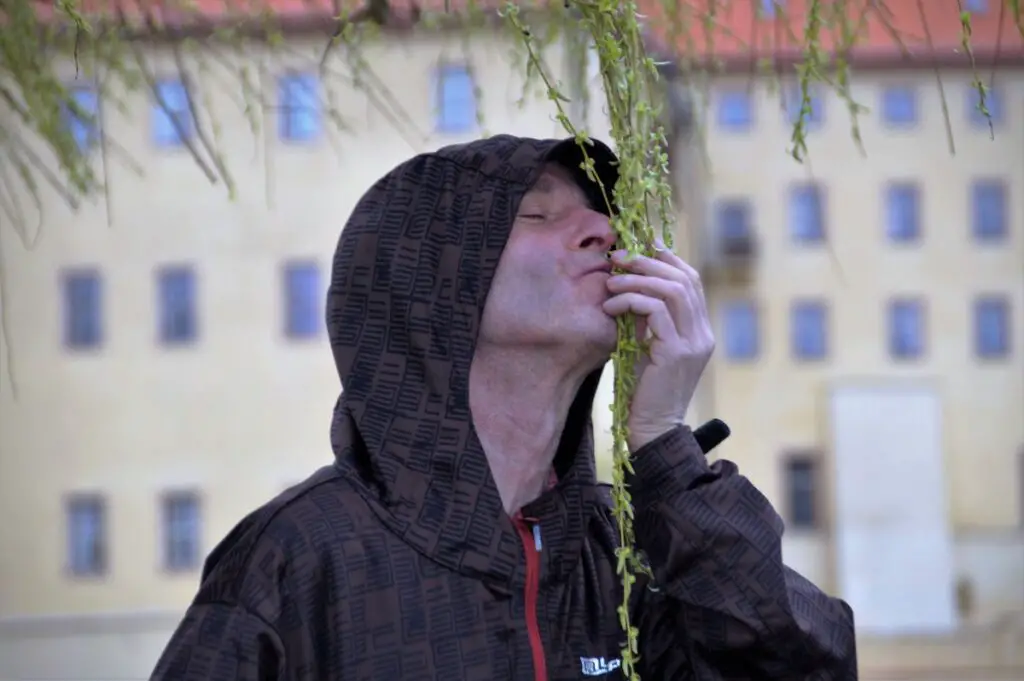
If your biceps feel more like biscuits than boulders, you might be aging in overdrive. Muscle mass naturally declines with age, but if you’re losing strength fast, it could be a sign of accelerated aging. Sarcopenia—aka age-related muscle loss—usually kicks in after 50, but if you’re under that and already struggling to open a jar of salsa, your body’s waving a warning flag. Strength isn’t just about looking good in a tank top—it’s critical for mobility, metabolism, and even brain health.
The Cleveland Clinic notes that without regular resistance training, you can start losing up to 3–5% of muscle mass per decade after 30. But if you’re skipping meals, eating junk, or never working out, that timeline speeds up dramatically. Less muscle also means slower calorie burn, more fat retention, and an increased risk of injury from things like… carrying groceries. Fun, right? Strength loss isn’t just an old-person problem—it’s an under-the-radar aging accelerant. So if the couch feels like it’s winning the battle lately, it might be time to rethink your routine.
2. You’re Getting “Old People Skin” Before Your Time
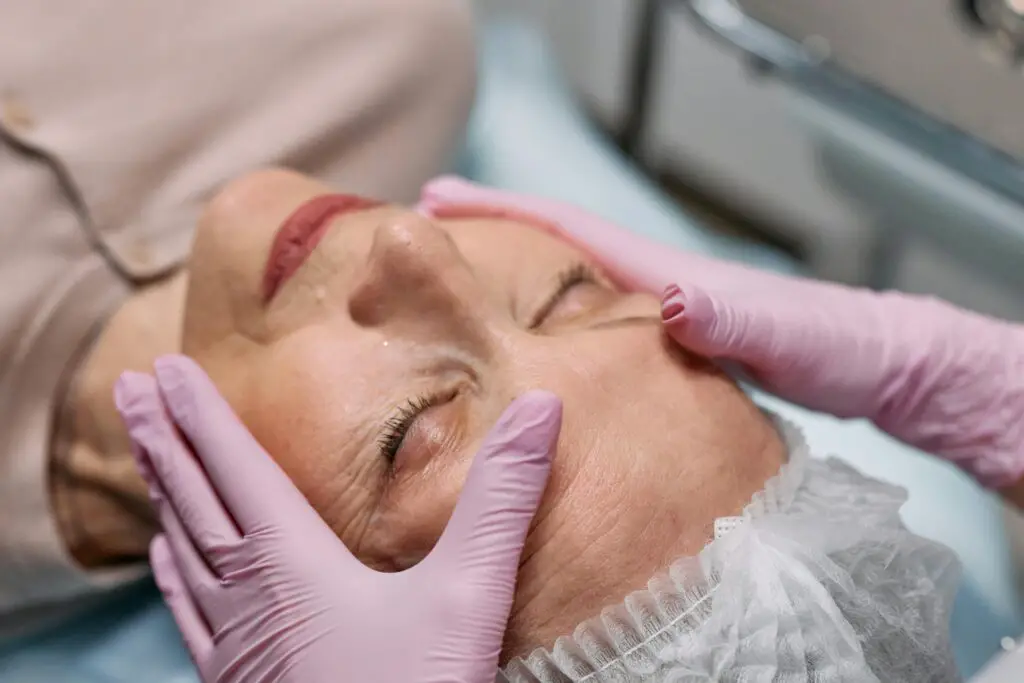
We’re not talking a few laugh lines—we’re talking crepey, thin, dry skin that makes you feel like a crumpled receipt. Premature skin aging isn’t just about vanity; it’s often a clue that your body’s losing collagen, elasticity, and hydration way ahead of schedule. Sure, a little sun here and there is fine, but if you’ve been tanning like it’s still 2003, you may have fast-tracked your skin’s aging process.
According to The Sun, UV exposure is the number one external factor that damages collagen and leads to that saggy, papery texture. Add in smoking, stress, sugar, and a lack of SPF, and your skin’s basically screaming for help. When your face starts feeling like it belongs on a Shar Pei puppy, it’s not just aesthetics—it could reflect what’s happening internally too. Skin is the largest organ, after all. And if it’s aging fast, chances are your cells are, too. The good news? A little skincare, hydration, and lifestyle change go a long way. The bad news? That tanning bed membership has got to go.
3. You’re Always Cold, Even When It’s 75 Degrees

Wearing a hoodie in the summer isn’t a vibe—it might be a sign your metabolism is stuck in slow-mo. As we age, our basal metabolic rate naturally dips. But if you’re constantly freezing, even in normal temperatures, it might mean your thyroid, circulation, or body composition is out of balance. A slowed metabolism = less energy production, which = less internal heat. Your body’s not broken—but it’s definitely whispering “help me” in thermal language.
Harvard Health explains that aging can reduce brown fat (the good kind that keeps us warm), which is why older adults—and people aging too quickly—feel cold more often. It could also signal hormonal shifts or vitamin deficiencies (hello, iron and B12). If your thermostat is cranked but you still feel like a popsicle, it’s time to check in. Especially if it’s paired with fatigue or slow weight gain. Constant chills aren’t quirky—they’re clues. And they’re saying your body’s internal engine may be aging faster than you think.
4. You Can’t Bounce Back from a Bad Night’s Sleep

One late night used to mean a couple of yawns and a triple-shot latte. Now it feels like you’ve been hit by a truck—and the recovery takes days. If your resilience to poor sleep has tanked, your body might be aging faster than expected. Sleep is when the body does most of its repair work—especially in the brain. So if a rough night leaves you foggy, achy, or moody for way longer than it should, it’s a big red flag.
PubMed points out that as people age, sleep quality decreases naturally—but it shouldn’t fall off a cliff. Difficulty recovering from sleep debt can mean hormonal imbalance, chronic inflammation, or cognitive stress. And it feeds into a vicious cycle: the worse your sleep, the faster you age. Not bouncing back = not regenerating properly. If melatonin, blue-light blockers, or routine changes aren’t helping, it’s worth digging deeper. Because waking up tired every day is not just “adulting”—it’s a warning sign.
5. Your Gums Are (and Your Dentist’s Not Even Subtle About It)
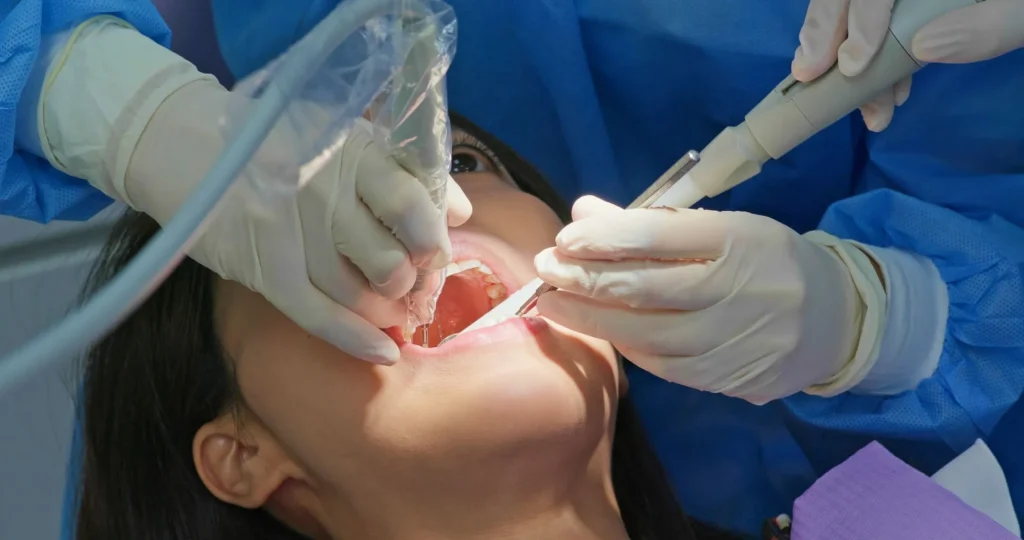
Nothing like a “hmmm” from your hygienist to remind you that your gums are on a slow retreat. Gum recession is common with age—but if it’s happening fast, it could mean inflammation is running wild in your body. That’s not just a dental issue—it’s a whole-body aging problem. Chronic inflammation wears down tissues, messes with your immune system, and speeds up cellular decline. And your gums? They’re one of the first places it shows up.
WebMD notes that aggressive brushing, smoking, and bad oral hygiene can all accelerate gum loss, but it’s also linked to systemic aging. And once that gumline recedes, it doesn’t come back easily. You could be losing tooth support, bone density, and even increasing your risk for cardiovascular issues. Plus, receding gums can make you look older than you are—no thanks. If your toothbrush looks like it’s been in a bar fight and your gums are MIA, your body’s aging report card might be due. And it’s not an A+.
6. You Bruise Like a Peach
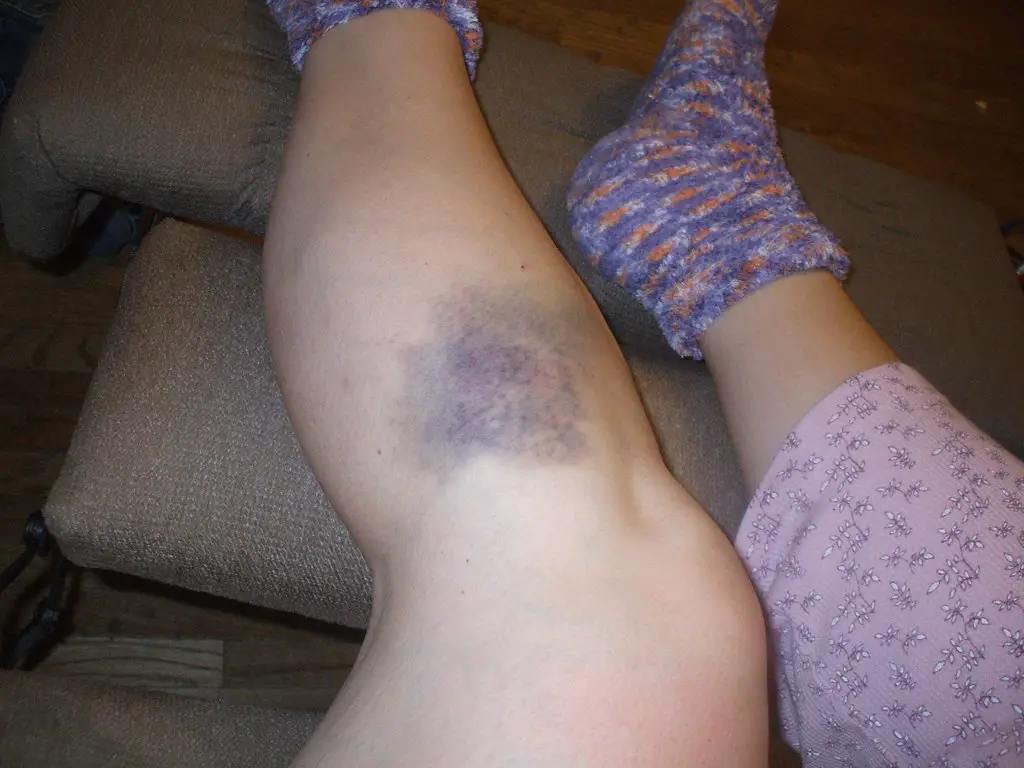
If brushing up against the coffee table leaves you looking like you lost a bar fight, your skin might be thinning faster than it should. Easy bruising is a telltale sign that your blood vessels are getting fragile and your skin’s losing its protective padding. Sure, a few bruises here and there are normal, but if you’re finding new mystery marks every week? That’s your body whispering, “Hey, I’m aging faster than I should be.”
Thinning skin can result from collagen loss, vitamin deficiencies, or even overuse of certain medications. It’s also linked to slower healing and increased inflammation—two things that tend to ramp up when your biological clock is sprinting. If bruises are showing up like uninvited guests and taking forever to fade, it might be more than just clumsiness. It’s your body losing resilience. So no, you’re not just “accident-prone”—you might be aging on fast-forward. Time to look into skin support, nutrient levels, and maybe ease up on blood thinners (with your doc’s help, of course).
7. Your Hair Is Thinning in All the Wrong Places
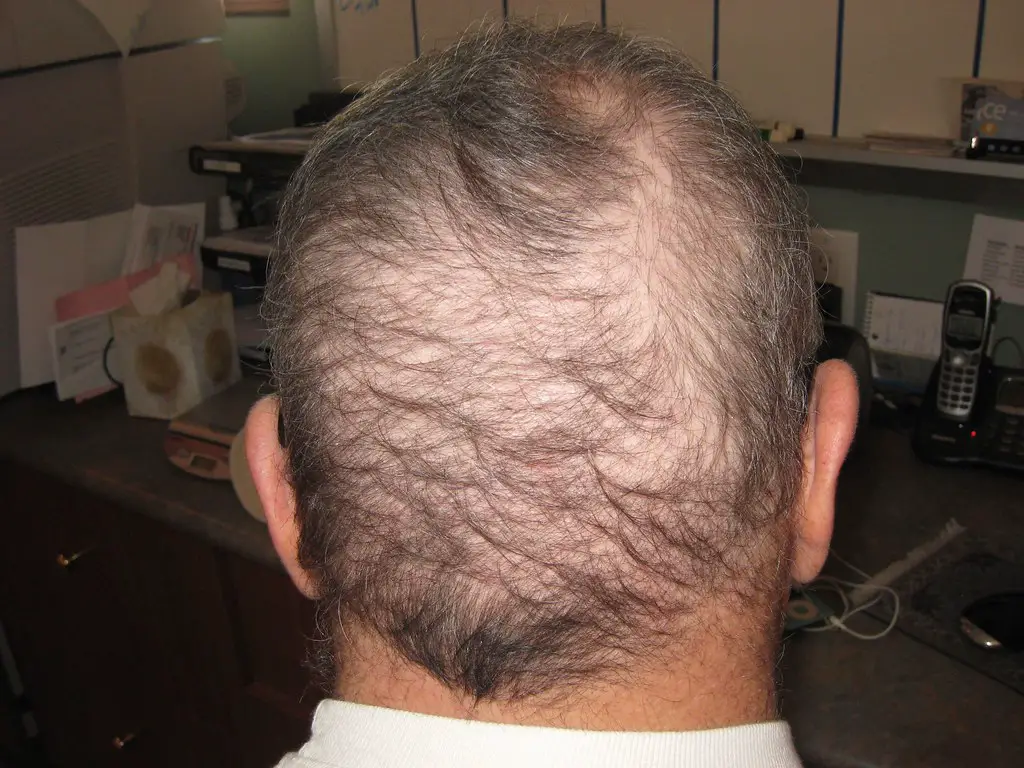
A few stray hairs in the shower? Normal. Watching your hairline creep back like it’s scared of your forehead? Not great. Thinning hair is one of those things we expect eventually, but if it’s happening in your 30s or 40s—or showing up in new places like eyebrows or arms—it could mean your aging process is in overdrive.
Hair loss can be hormonal, nutritional, or stress-related, but it often links back to inflammation and oxidative stress—two aging accelerators that like to show up uninvited. And it’s not just about losing volume on top. Thinning body hair, slower regrowth, and brittle strands can all signal internal imbalances. Basically, your follicles are waving the white flag. If your barber suddenly needs less time and fewer scissors, your body’s aging timeline might need a check-in. And if you’re shedding more than your dog? It’s worth digging deeper.
8. You’re Always Tired, Even When You Did Sleep

If eight hours of sleep feels like it buys you exactly two hours of alertness, your body may be aging faster than it should. Chronic fatigue isn’t just a lifestyle problem—it’s often a cellular one. Mitochondria (your cells’ energy factories) naturally slow down as you age, but if they’re sputtering before their time, you’ll feel it everywhere. Your muscles feel weak, your brain feels foggy, and your to-do list becomes “nap, then think about the to-do list.”
Fatigue can also reflect hormonal imbalances, inflammation, or nutrient deficiencies—basically, all the stuff that shows up early in accelerated aging. If your energy tank is constantly running on fumes, even when you’re doing “all the right things,” something deeper could be off. Your body’s ability to repair and recharge may already be in decline. That sluggish feeling isn’t laziness—it’s your inner battery saying, “I’m 85 on the inside.” And you deserve better than that.
9. Your Joints Ache Like You’re Twice Your Age
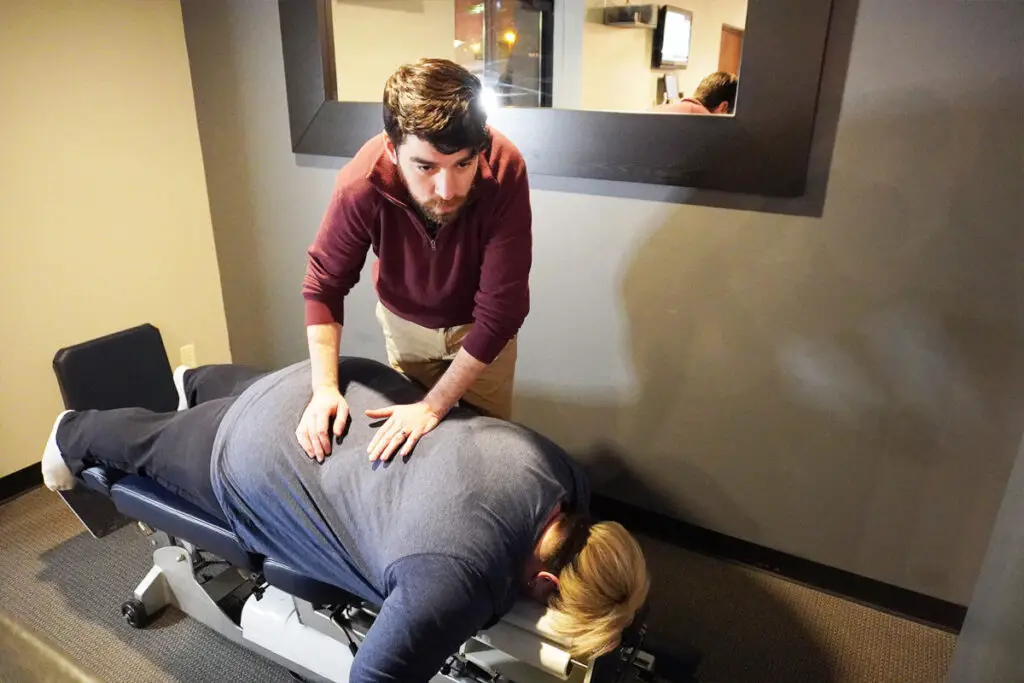
A little creaking when you stand up? Fine. But if your joints sound like a microwave popcorn bag every time you move—and hurt while doing it—that’s another story. Accelerated aging shows up fast in connective tissue, especially if you’ve been sedentary, stressed, or overloaded with inflammatory foods. Those aches and pains that seemed cute in your 60s are showing up in your 40s? Not a great sign.
Cartilage breaks down faster when the body’s under oxidative stress, and inflammation just speeds up the process. That stiffness you feel in the morning or after sitting too long? It’s not just aging—it’s fast aging. Add in limited mobility or a tendency to skip workouts (because it hurts), and you’ve got a downward spiral. Your joints are your shock absorbers, and when they start breaking down early, the rest of your body pays the price. Don’t ignore those daily twinges—they’re trying to tell you something.
10. Your Memory’s Slipping (and You’re Low-Key Panicking About It)

We all forget why we walked into a room sometimes, but if names, appointments, or basic info are slipping more than they used to? That’s a red flag. Cognitive aging doesn’t happen overnight—but when it’s fast, it can feel like your brain went from Google Chrome to dial-up in a matter of months. You find yourself rereading emails, repeating questions, or relying heavily on reminders. And sure, stress can mess with focus, but persistent fog could mean your brain is aging faster than the rest of you.
Early signs of cognitive decline are often subtle, but they can sneak in under the radar and leave you wondering, “Is this normal?” If it’s happening often enough to stress you out, it’s probably worth checking out. Memory and mental sharpness are tightly linked to sleep, nutrition, inflammation, and overall health. So if your brain is throwing up buffering wheels mid-sentence, don’t just brush it off. It’s not just aging—it might be accelerated aging.
11. You’re Gaining Belly Fat—Even Without Eating More
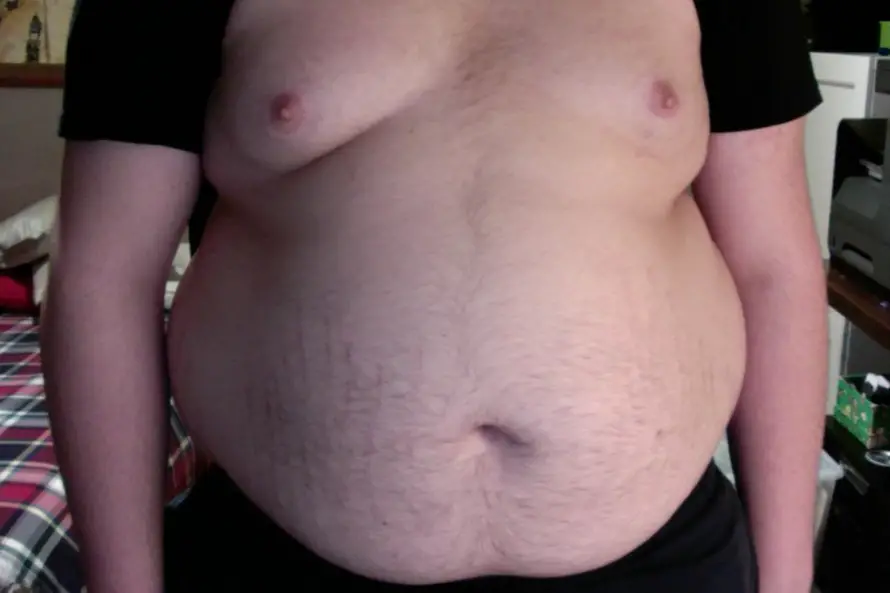
If your jeans suddenly stopped being team players and you didn’t just house a pizza, something’s up. Weight gain, especially around the belly, is a classic sign of aging—but when it comes out of nowhere? It could be a metabolism slowdown that’s running ahead of schedule. Visceral fat—the kind that hangs out around your organs—isn’t just about appearance; it’s linked to inflammation, hormone imbalances, and chronic disease risk.
Even if the scale hasn’t moved much, that sneaky waistband creep could mean your body composition is shifting in all the wrong ways. Accelerated aging throws your hormones into chaos, tanks your muscle mass, and slows your burn rate. So your body starts stockpiling fat it doesn’t need, even if you haven’t changed your routine. If you’ve been doing everything “right” and still gaining weight, it’s not just unfair—it’s biochemical rebellion. Time to zoom out and look at the full aging picture.
12. Your Nails and Hair Grow Slower (and Look Kinda Sad)
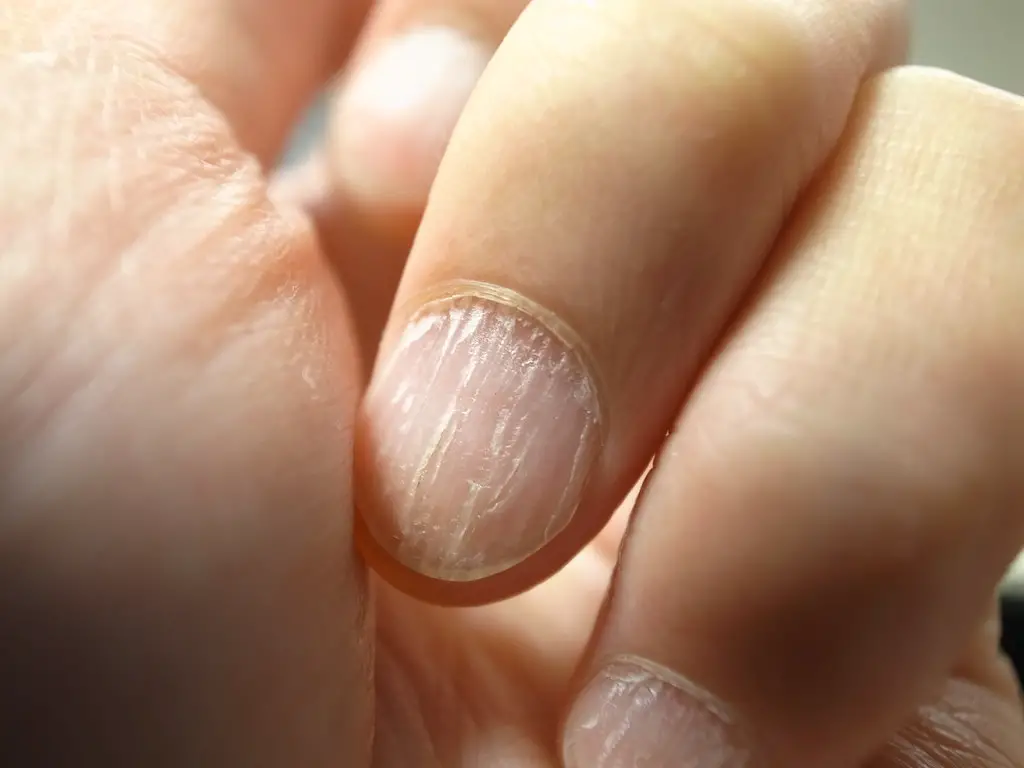
If your nails are breaking like dried spaghetti and your hair takes forever to grow, your body might be scaling back on regeneration. Healthy nails and hair are often the first things to suffer when your system’s focused on more “urgent” tasks—like fighting inflammation, repairing oxidative damage, or just staying afloat. Slower growth and brittle texture can mean your cellular turnover is lagging behind schedule.
That’s not just a beauty issue—it’s a canary in the coal mine for overall vitality. Your hair and nails reflect internal health, including circulation, nutrition, and hormone levels. If they’ve gone from vibrant to “meh,” your aging process might be stuck on fast-forward. And once your body starts pulling resources from “nonessential” areas? That’s when you know it’s in conservation mode. Which is cute for survival—but not great for thriving. Take it as your body’s passive-aggressive way of asking for help.

